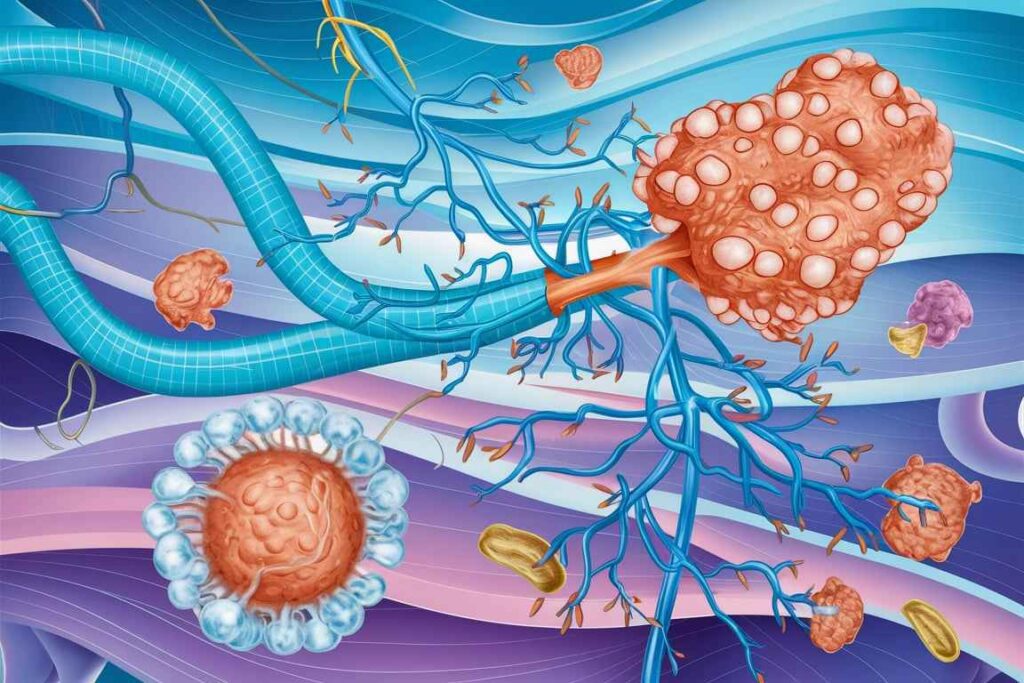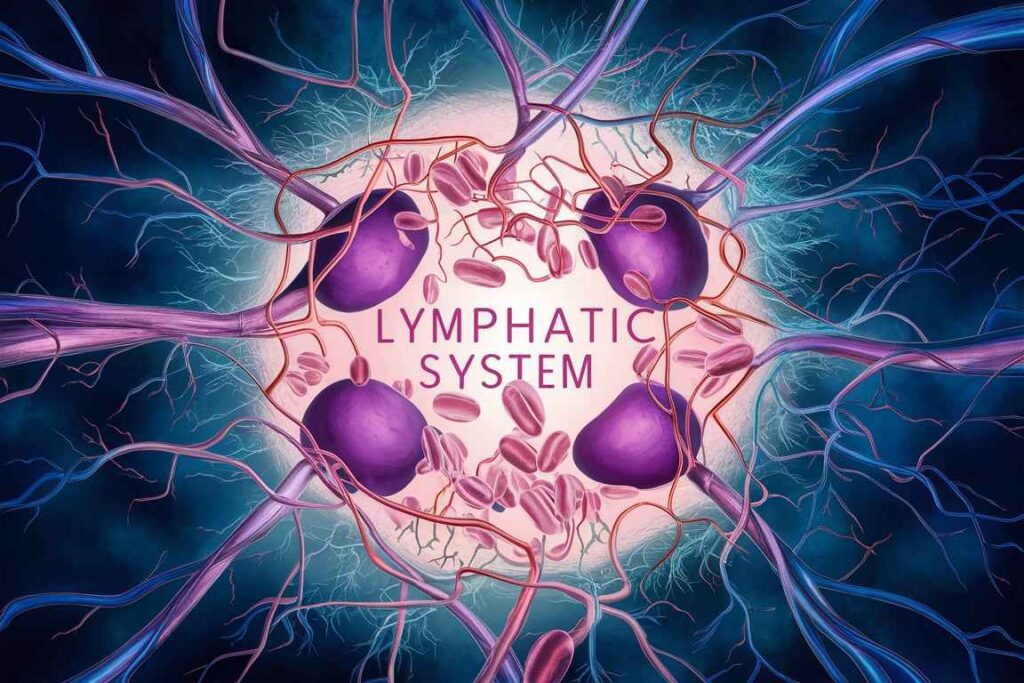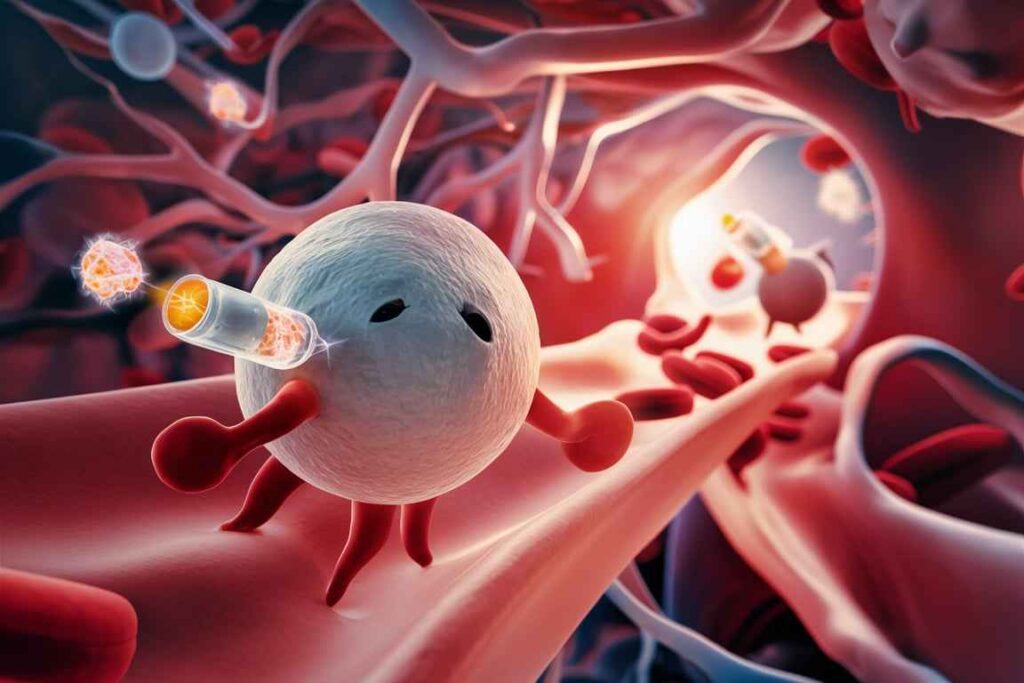lymphatic system, also known as the lymph system, is a network of vessels, nodes, and organs that transports lymph fluid, aids in immune function, and maintains fluid balance in the body. lt is a crucial part of the body’s immune system and fluid balance. It includes a network of lymphatic vessels, lymph nodes, and lymphoid organs such as the spleen and thymus. The fluid that circulates within this system is called lymph.
Table of Contents
Lymph System
Lymph System is a clear, colorless fluid that circulates through the lymphatic system. It plays a crucial role in maintaining the body’s fluid balance, removing waste products, and supporting the immune system.

Lymphatic System
lymphatic system is a vital component of the body’s immune and circulatory systems. It consists of a network of lymphatic vessels, lymph nodes, and lymphoid organs that work together to maintain fluid balance, absorb dietary fats, remove waste products, and support immune function.

Functions of the Lymphatic System
Fluid Balance:
The lymphatic system helps maintain fluid balance in the body by collecting excess interstitial fluid (fluid that surrounds cells in tissues) and returning it to the bloodstream. This prevents tissue swelling (edema).
Absorption of Dietary Fats:
Specialized lymphatic vessels called lacteals, located in the lining of the small intestine, absorb dietary fats and fat-soluble vitamins. These nutrients are then transported through the lymphatic system and eventually into the bloodstream.
Removal of Waste Products:
The lymphatic system helps remove cellular waste, debris, and foreign particles from tissues. These are transported through the lymph and filtered out by the lymph nodes.
Role in Immunity
Transport of Immune Cells:
The lymphatic system serves as a conduit for the transport of immune cells, such as lymphocytes (B cells and T cells), to different parts of the body. This ensures that immune responses can be mounted where they are needed.

Filtration of Lymph:
Lymph nodes are small, bean-shaped structures that filter lymph. They trap and destroy bacteria, viruses, and other foreign particles, preventing them from spreading to other parts of the body. Lymph nodes contain immune cells that can recognize and respond to these pathogens.
Immune Surveillance:
Lymphoid organs, such as the spleen and thymus, play critical roles in the development and function of the immune system. The spleen filters blood, removing old or damaged red blood cells and pathogens. The thymus is where T cells mature and differentiate.
Antigen Presentation:
Dendritic cells and macrophages within the lymph nodes capture antigens (foreign substances) and present them to T cells, initiating an adaptive immune response. This is crucial for the activation of T cells and the development of specific immunity.
Components of the Lymphatic System
Lymph:
Lymph is a clear fluid derived from interstitial fluid. It contains immune cells, primarily lymphocytes, and is similar in composition to plasma but lacks red blood cells and platelets.
Lymphatic Vessels:
These vessels transport lymph throughout the body. They begin as small lymphatic capillaries in tissues and gradually merge into larger vessels, eventually draining into the thoracic duct or right lymphatic duct, which then empty into the bloodstream.
Lymph Nodes:
Lymph nodes are distributed throughout the body along the lymphatic vessels. They act as filtration and immunological hubs where immune responses can be initiated.
Lymphoid Organs:
- Spleen: Filters blood, removing pathogens and old or damaged red blood cells. It also serves as a site for immune cell interactions.
- Thymus: Located in the upper chest, the thymus is where T cells mature and differentiate.
- Tonsils and Adenoids: Located in the throat, these tissues trap pathogens entering through the mouth or nose.
- Bone Marrow: Although not part of the lymphatic system proper, bone marrow is where all immune cells, including lymphocytes, are produced.
Frequently Asked Question
Define Lymph System.
Lymph is a clear, colorless fluid that circulates through the lymphatic system. It plays a crucial role in maintaining the body’s fluid balance, removing waste products, and supporting the immune system.
Define lymphatic system.
lymphatic system is a vital component of the body’s immune and circulatory systems. It consists of a network of lymphatic vessels, lymph nodes, and lymphoid organs that work together to maintain fluid balance, absorb dietary fats, remove waste products, and support immune function.
Related Article

